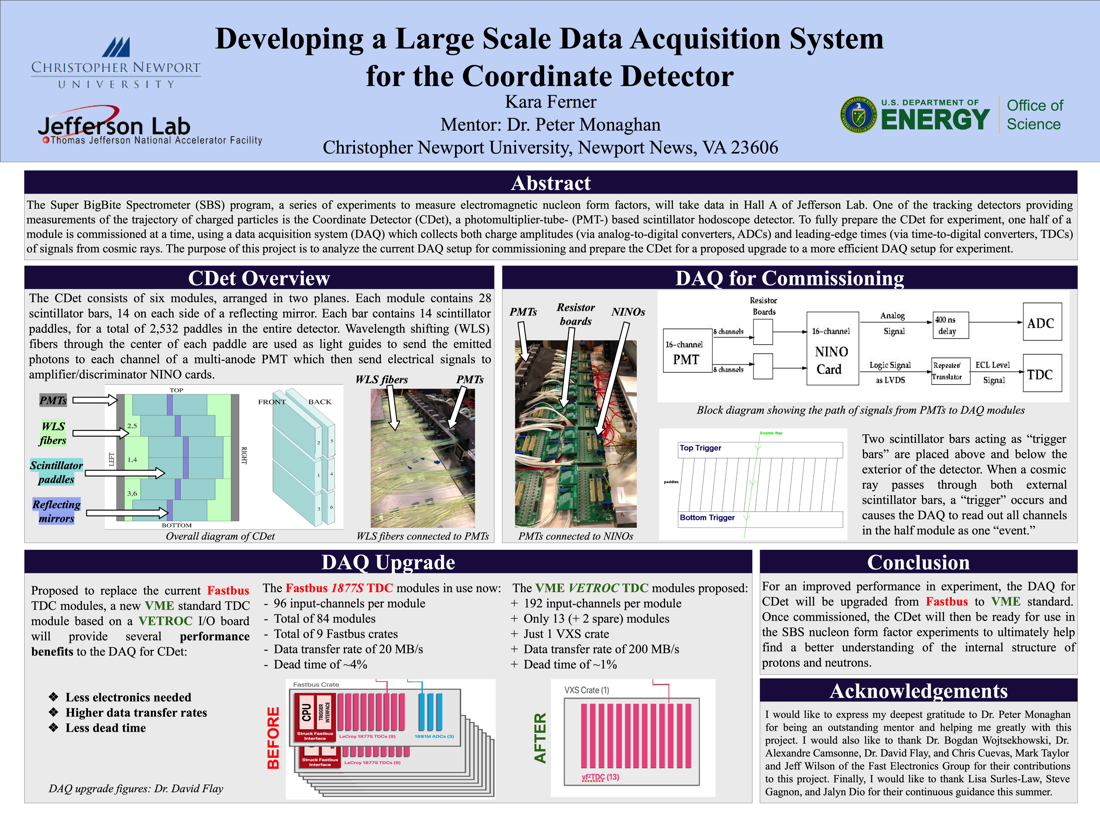Undergraduate Research at Jefferson Lab
Developing a Large Scale Data Acquisition System for the Coordinate Detector
Student: Kara Ferner
School: Christopher Newport University
Mentored By: Peter Monaghan
Hall A of Jefferson Lab houses the Super BigBite Spectrometer (SBS) program - a series of experiments to measure electromagnetic nucleon form factors for a better understanding of the fundamental structure of protons and neutrons. Providing high resolution position and trajectory information of particles, the SBS apparatus will employ a series of tracking detectors, one of which is the Coordinate Detector (CDet). The CDet is a photomultiplier-tube- (PMT-) based detector made of six scintillator hodoscope modules. The focus of this project is to prepare the CDet for experiment by: 1) continuing a commissioning process which determines the optimal high voltage values for maximum efficiency, and 2) analyzing the current data acquisition setup in preparation for an upgrade. To collect signals from cosmic rays, the commissioning process uses a data acquisition system (DAQ) for the analysis of both charge amplitudes (via ADC, analog-to-digital converters) and leading-edge times of the signals (via TDC, time-to-digital converters). After normalizing the charge amplitudes for each PMT, and applying data cuts to remove unwanted events, the efficiency percentages of each channel at five different high voltage values - 700, 725, 750, 775, and 800 volts - are calculated and compared, allowing for identification of the optimal high voltage value. Executing this process for each of the six modules will maximize efficiency of the detector and ensure that each component works properly. After the completion of the commissioning process as well as a successful implementation of the proposed upgrade for the TDC modules, the CDet will be fully prepared for installation and data-taking in Hall A where it will provide trajectory measurements of scattered particles. Therefore, the current commissioning work and development of a data acquisition system for the CDet will ultimately aid in generating more precise data contributing towards a greater understanding of nucleon structure.
[Watch the presentation on YouTube]

Citation and linking information
For questions about this page, please contact Education Web Administrator.
